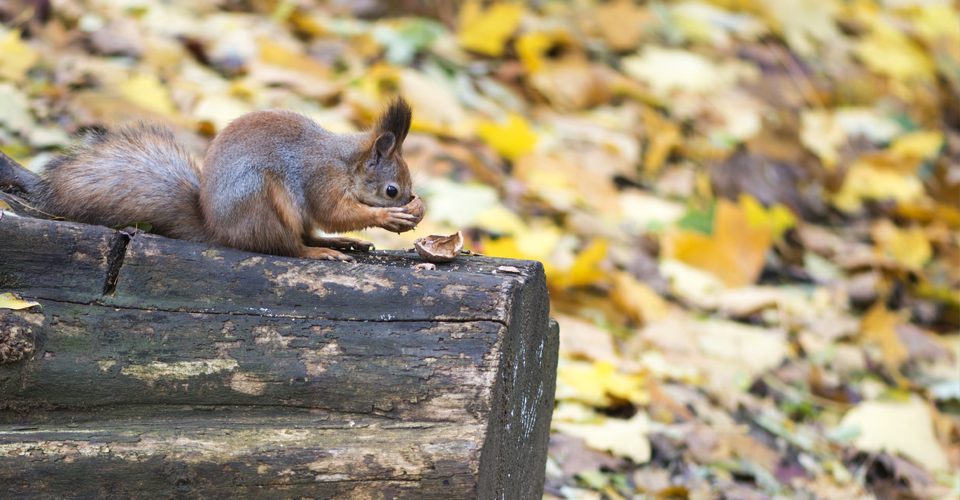The boreal forest is essential to the survival of life on earth. It is often referred to as “the lungs of the planet” because of the critical role it plays in air purification and carbon capture. But did you know that the boreal forest is also crucial to local and global food security?
The boreal forest is essential to the survival of life on earth. It is often referred to as “the lungs of the planet” because of the critical role it plays in air purification and carbon capture. But did you know that the boreal forest is also crucial to local and global food security?
Approximately 2.5 million people in Canada, including several hundred thousands of Aboriginal peoples, call the boreal forest home and rely on it as a source for sustenance. As one of the last large, intact forests in the world, the boreal forest provides invaluable natural services and must be protected.
According to the David Suzuki Foundation, the boreal forest is an important source of food for the hundreds of Aboriginal communities who reside there as the plants add essential vitamins and nutrients to their predominantly meat-based diet. In fact, the estimated worth of the Canadian boreal forest to Aboriginal people for subsistence food alone is between $261.4 million and $575.1 million a year.
In addition to fish and game, the foods of the forest include a variety of plant foods including green vegetables, root vegetables, fruits, wild rice and other plants used for beverages and flavourings. Berries are also used to add flavour, in the form of sweetness, to foods as well. The vitamin rich berries of the boreal forest aren’t limited to typical grocery fare; they also include the delicious bog blueberry, Saskatoon berry, lingonberry, cloudberry, small cranberry, bearberry, rosehips and highbush cranberry.
The boreal forest is critical to global food security as well as local. Its wetlands are integral to water filtration, which is essential to food production around the world. The boreal forest is also one of our best defences against climate change since its carbon stores help to regulate the earth’s temperature. As the Food and Agriculture Organization of the United Nations recognizes, climate change is a serious threat to food security around the world as it could reduce agricultural productivity due to more extreme, frequent and intense weather events.
The natural services provided by the forest, including climate change mitigation, have an estimated worth of about $700 billion dollars, but this essential resource is still threatened by industrial development.
Notable efforts have been made to recognize the natural capital, economic benefit and social significance of the boreal forest, including the creation of The Canadian Boreal Forest Agreement. This agreement was signed in 2010 by twenty-one forestry companies, represented by the Forest Products Association of Canada, and nine leading environmental organizations including the David Suzuki Foundation, Green Peace, The Nature Conservancy and the Canadian Boreal Initiative.
This historic agreement aimed to resolve issues between environmental organizations and forestry companies and find innovative solutions that integrate habitat protection and sustainable management practices while still maintaining fibre supply for mill operations. It also called for the recognition of Aboriginal treaty rights and traditional territories. Additionally, the agreement committed 28.5 million hectares of forest as off-limits to logging and road building in exchange for the suspension of “do not buy” campaigns led by environmental group signatories and aimed at forestry companies participating in the Canadian Boreal Forest Agreement.
Although the signing of this agreement was historic and applauded, Greenpeace recently discovered that Resolute Forest Products violated the agreement through its logging activity in off-limit areas. Unfortunately, this has seriously undermined the agreement.
As the fight to protect the boreal forest continues, it is critical to consider the implications of deforestation on local and global food security. Fortunately, there are many conservation initiatives to watch including Nature Canada’s call to the Government of Canada to advance the Northwest Territories Protected Areas Strategy and the nomination of Pimachiowin Aki, a significant section of the boreal forest located on the border of Manitoba and Ontario that covers over 3.34 million hectares, to be recognized as a World Heritage Site by the United Nations Educational Scientific and Cultural Organization. Conservation efforts to protect the boreal forest must be supported by food advocates and the public to ensure food security for generations to come.
The Food & Culture blog currently features monthly articles by Jo Anne Tacorda focused on food justice. If you’re interested in adding your voice to this blog, please send a short proposal and writing sample to blogs @ alternativesjournal.ca.
Through sharing her adventures and reflections in the food movement, Jo Anne will explore complex issues from a youth perspective, including the need for an innovative, integrated, empowerment-focused approach to food security; the connections between social justice, environmental issues, and food production; and reviews of foodie events in the Greater Toronto Area.
Sharing her adventures and reflections in the food movement, Jo Anne explores complex food issues from a youth perspective, including the need for an innovative, integrated, empowerment-focused approach to food security and the connections between social justice, environmental issues and food production.












